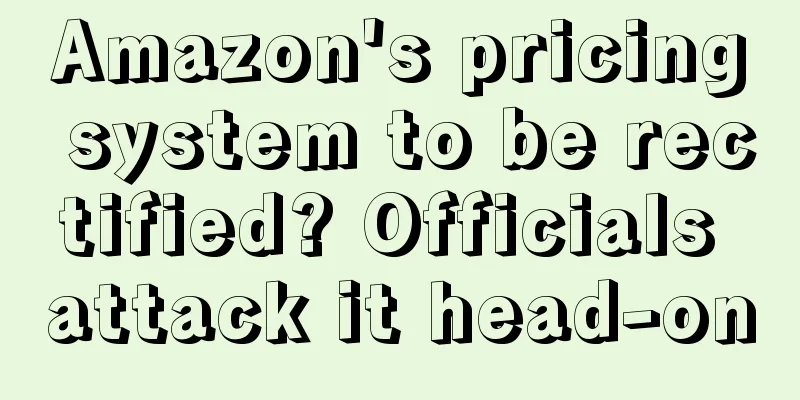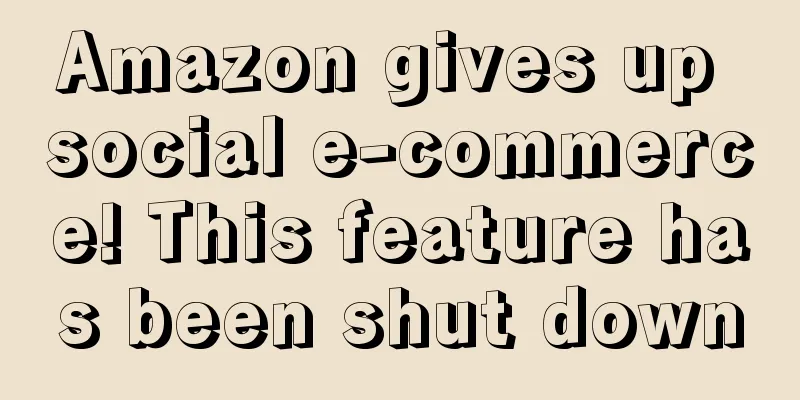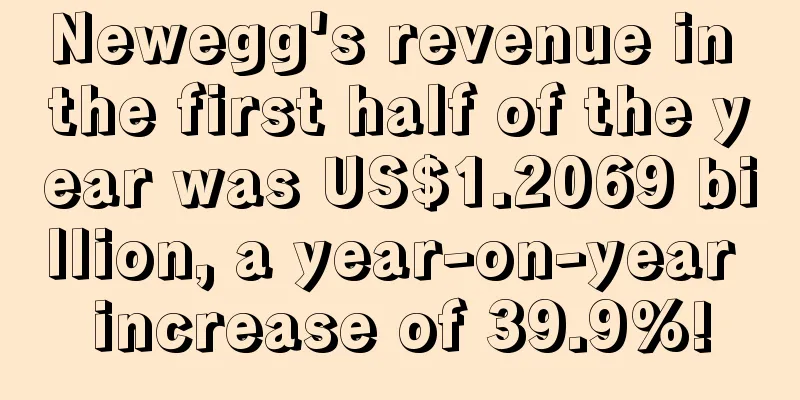Amazon's pricing system to be rectified? Officials attack it head-on

|
Recently, foreign media reported that the US government has revised its antitrust indictment against Amazon, added new charges and resubmitted the lawsuit, demanding that Amazon immediately stop its monopolistic behavior! Previously, the antitrust team's main focus in suing Amazon was on Amazon's illegal use of third-party sellers' data to develop products for its own business, and then in turn competing with sellers to gain improper and unfair competitive advantages. Now the antitrust team has added a new accusation to the lawsuit materials, targeting Amazon for forcing sellers to provide the lowest prices on the entire network and forcing suppliers to bear the profit losses caused by excessively low pricing. Amazon not only requires third-party sellers to offer the lowest prices, but also signs anti-competition agreements with first-party sellers or suppliers to further consolidate Amazon's monopoly position. As the only dominant platform, Amazon makes it impossible for other platforms to compete with it. The lack of competition has seriously damaged the rights and interests of consumers, leaving them with no autonomy in choosing products. Therefore, the antitrust team believes that Amazon is continuing to use its dominant position as an online market to manipulate the entire e-commerce industry, crushing Amazon's own competitors, causing them to reduce their share or even make it difficult for them to survive. After gaining greater monopoly power, it in turn drives up prices for end consumers and obtains huge profits in the process, helping Amazon become the most valuable company on the planet. The antitrust team's revision of the indictment actually tells us that the US government has quite a few cards in its hands. It not only has a monopoly on Amazon's self-operated business, but is also releasing evidence of Amazon's monopoly crimes step by step, hoping to force Amazon to plead guilty and be punished. The authorities have played their cards very steadily, but Amazon will not allow itself to be slaughtered. Instead, it is trying to mobilize public opinion to confront the authorities.
Amazon's wishful thinking Ever since Amazon issued a joint letter request to sellers in the background, which was ignored or even resisted by the sellers, Amazon should have realized that these sellers are usually too harshly exploited and will not stand on its side when something really happens. So Amazon began to think of ways to start from the consumer's perspective and win over a larger group to stand up for itself against official antitrust sanctions. So we have seen in the past few weeks that Amazon has been continuously implementing policies that benefit consumers but are disadvantageous to sellers, including no return and refund, automatic refund approval, and mandatory free refund. This wave of policies has encouraged consumers to get products for free. However, Amazon has not vigorously rectified it, but only made some minor changes, such as face-to-face delivery. Although it formally ensures the process of the courier delivering the product to the customer, the option of face-to-face delivery is actually chosen by the consumers themselves. A seller who wants to get products for free naturally will not take the initiative to choose such a method. This function has also failed to eliminate free products from the root, and in the end it is the sellers who are disgusted. All signs indicate that Amazon has now changed its tune and started to woo consumers, hoping that this large group will stand on its side when Amazon faces a breakup, and use their natural distrust of government organizations to prevent antitrust sanctions against it. How determined is the US government to sanction Amazon? Does it really have to split Amazon? Judging from the recently released US social inflation rate, the government is really in a hurry. The three-year expected average inflation rate in the United States reached 4% in August, and it hit a record high of 5.3% in the middle of the month. Although inflation is the result of the United States printing a lot of money, the printed money did not flow into the market and society as expected, injecting economic vitality into the entire society. Instead, it concentrated on technology giants, making their market value higher and higher, and exerting a huge siphon effect on the entire market. No matter how much money is printed, it will always be eaten up by the top companies. And Amazon is the "first bird" among them. Everyone should still remember that at the end of last year, Amazon set a global market value record and was one of the direct beneficiaries of the United States' massive money printing. But in the final analysis, the purpose of the US government's money distribution is not to let Amazon eat itself, but to stimulate social and economic activities and allow more small and medium-sized enterprises and consumers to consume and live. The money will go in the opposite direction when it reaches Amazon, so the business of the giant must not be monopolized. Without competition, Amazon will eat up the entire market. Therefore, the US government is very determined to conduct an antitrust investigation on Amazon this time, which is a major event related to the entire US economy. |
<<: Traffic growth rate of 164% in the first half of the year? This market is booming
>>: Are there any changes to Amazon store credit terms? They have been officially implemented
Recommend
Demand for pet products in the United States has cooled, and leading brands have adjusted their growth strategies
According to the latest report from eMarketer, the...
Amazon Prime effect spreads! Many retailers in the United States follow suit and adopt paid membership
It is learned that according to foreign media repo...
What is DHgate.com? Review of DHgate.com
DHgate.com is the world's leading online forei...
What is Lunapic? Lunapic Review
Lunapic is a multifunctional online image editor t...
How do I resolve the “Possible High Pricing Error” in my listing?
Yesterday, a seller asked about the problem of ov...
What is Transferwise? Transferwise Review
Transferwise was founded on March 1, 2010. It is a...
The highest price is 50,000 yuan! Bing Dwen Dwen has gone viral overseas, and is Amazon selling out?
The holiday mode of "ignoring cross-border af...
Sales of multiple products have surged, and these categories on Amazon are selling out!
The beginning of each year is a slow season for ma...
Pinterest's Q1 net loss widened to $209 million, and its stock price fell 8% after the market closed
It is learned that on April 27, the US social pla...
A detailed discussion on the refined management of keywords
In daily work, everything must be done in detail....
Congestion at the Port of Los Angeles hits a new record! Will the global shipping system face its biggest crisis?
<span data-shimo-docs="[[20,"获悉,洛杉矶,加利福尼亚长...
US orders drop 40%! Chinese factories shut down two weeks ahead of the Lunar New Year
According to the latest report from CNBC, US manuf...
Using Google Shopping to expand e-commerce business series ④: How to track advertising results
Google Shopping ads are displayed as organic list...
Amazon's big move: Advertisers can check shopping data from the past five years
Amazon has launched another major move this time! ...
What is Ninjacart? Ninjacart Review
Ninjacart is an Indian e-commerce platform that in...









